Palestinian Prisoner's Day: How Palestinians in Israeli jails face abuse and torture
By Maryam Qarehgozlou
In a haunting tableau, a group of men, blindfolded, stripped down to their underwear, and surrounded by Israeli soldiers are kneeling along the wall of a building scarred and charred by bombs.
“All the while, your hands are tied and your eyes are blindfolded and you are on your knees, and you’re not allowed to move right or left,” said Majdi al-Darini, a 50-year-old father of four and retired civil servant, who was apprehended by Israeli soldiers in mid-November.
“They treated us like animals, they would hit us with sticks and hurl curses at us,” he exclaimed
Darini was held for 40 days with his hands restrained nearly the entire time, according to a media investigation. The restraints cut into his wrists, leaving wounds that eventually became infected.
A video of Darini after he was released showed scabs around his bruised and bleeding wrists.
In the shadow of Israel’s October 7 genocidal war on Gaza which has so far killed more than 33,900 people, record numbers of Palestinian detainees are filling Israeli regime-run prisons, where they face “systemic abuse” and torture, according to rights groups.
Photos and videos of Palestinians held by Israeli soldiers in the Gaza Strip and their vulnerability amid the turmoil speak volumes about the human toll of Israel’s genocidal war on the besieged territory.
In Gaza, hundreds of people have been arrested by the Israeli military in their search for resistance fighters, while so-called Israeli security forces have conducted an enormous crackdown in the West Bank that they say is intended to “root out militants.”
Israel doubles number of Palestinian prisoners
The massive arrest campaigns have almost doubled the number of Palestinians in Israeli prisons from about 5,200 Palestinians lodged in Israeli prisons prior to October 7.
According to the Ramallah-based Addameer prisoners’ rights group, currently, 9,500 Palestinians are held illegally in Israeli jails including 3,660 administrative detainees, who are held without formal charges behind bars for periods ranging from several months to several years.
The rights group reported that 200 children, 56 journalists and 80 women are also among the detainees.
Addameer says the number of child prisoners before October 7 did not reach this number, which indicates the occupation’s use of “punitive” and “oppressive” policies against children during wars and uprisings.
Worldwide, it is only Israel “that systematically prosecutes between 500 and 700 Palestinian children annually in military courts, lacking basic rights of fair trial,” according to the Defense for Children International-Palestine (DCIP).
‘Enforced disappearances’
The abovementioned figures exclude detainees from Gaza who are held under Israel’s illegal policy of “forcible hide,” also known as “enforced disappearance.”
Palestinian Prisoner’s Society reported that Israel has detained thousands of Palestinians during the ground invasion of Gaza and is still “refusing” to provide any information on their whereabouts.
Palestinian Prisoner’s Club said the available data on detainees from Gaza is “scant” as Israel refuses to disclose any data regarding the detainees from Gaza, or “unlawful combatants” as it refers to them.
“What the occupation [Israel] has published of photos and video clips during the ongoing ground invasions of Gaza included horrifying scenes of the arrest of hundreds from Gaza, naked and detained under conditions that demean human dignity, are sufficient to indicate the severity and magnitude of the crimes committed against them,” it said.
It also said since the regime launched its fresh aggression on Gaza, Israeli authorities have worked to “manipulate” the law to “entrench” the crime of enforced disappearance against detainees from Gaza.
‘Systematic violation of human rights’
The systematic violations of the rights of Palestinians in Israeli detention centers were inherent in the practices and policies of the occupying regime’s prison bodies for decades.
However, in the aftermath of the October 7, testimonies from released detainees and human rights lawyers, as well as video footage and images of torture and other ill-treatment the prisoners have been subjected to by Israeli forces, reveal that any semblance of restraint has been cast aside regarding the treatment of Palestinians in incarceration.
These include starvation, severe beatings and humiliation of detainees, for instance by forcing them to keep their heads down, to kneel on the floor during inmate count, and to sing Israeli songs, forced disappearances, and denial of access to adequate medical care, rights groups say.
Physicians for Human Rights Israel (PHRI) revealed in an analysis in late February that since October 7, both the Israel Prison Service (IPS) and the military have implemented policies of “arbitrary punishment by systematically infringing upon the rights of Palestinians in custody.”
Such actions, it said, “have garnered support and, at times, were explicitly demanded by the [Israeli] political ranks.”
“Simultaneously, the judicial system has allowed these blatant deviations from professional and ethical standards to persist without intervention,” PHRI added.
In a fact sheet released on Wednesday, concurrent with Palestinians Prison Day, the Palestinian Prisoner’s Society reported that 16 Palestinian detainees have been killed in Israeli detention facilities since October 7, 2023.
“Throughout [the war], the occupation devices committed terrible crimes against detainees, which led to the martyrdom of 16 detainees due to systematic measures of torture, medical crimes, the policy of starvation and many other violations and assaults conducted against male and female detainees, minors and elderly detainees,” it said.
On April 7, jailed Palestinian activist and novelist Walid Daqqa, died of medical negligence and custodial torture after serving 38 years in Israeli prisons.
In 2012, Daqqa’s life sentence, which he received due to an alleged charge of killing an Israeli soldier, was reduced to 37 years in prison which would have allowed him to get out in March 2023.
But Israeli authorities falsely claimed that he had tried to smuggle mobile phones into prison in 2018, extended his sentence, and set his release date for March 2025.
However, Daqqa was diagnosed with a rare form of bone marrow cancer in December 2022 and had previously fought leukemia and a stroke.
The Palestinian Commission of Detainees and Ex-Detainees Affairs said Daqqa’s death was caused by a “slow killing” policy carried out against ill Palestinian prisoners by the Israeli prison administration.
Israeli authorities have so far withheld his body, according to the Palestinian Prisoner’s Society.
The prisoner’s rights group also added that Israel’s arrest campaigns are accompanied by many crimes and violations such as brutal beat, vandalism and destruction in detainees’ houses, confiscating cars, gold and money, in addition to the destruction of infrastructure especially in the refugee camps of Tulkarem and Jenin in the occupied West Bank.
Gender-based violence
Israeli forces know Palestinian women place great importance on their bodies’ integrity and honor. This is especially important due to the types of threats targeted at Palestinian women detainees.
In testimonies documented by Euro-Med Human Rights Monitor, female Palestinian detainees from the Gaza Strip reported being subjected to sexual violence, torture, inhuman treatment, strip searches, sexual harassment, and rape threats while being arrested and held by Israeli army forces.
RR, a 31-year-old resident of northern Gaza City, who requested anonymity due to safety fears, said that she was detained on December 3, 2023, while attempting to cross the Netzarim military checkpoint on foot to head to the southern section of the Strip.
All of her belongings—gold, cash, a phone, and personal items—were seized upon her arrest, she said.
She added that Israeli forces made her undress before tying her hands together, blindfolding her, and transporting her to a detention facility at the Zikim site, where she endured excruciating interrogation sessions that included verbal abuse, beatings, and torture.
She admitted to having been physically assaulted while undressed and detained outdoors in the bone-chilling cold up until her release on 19 January.
SD, a 20-year-old resident of the Jabalia refugee camp in northern Gaza, who also asked not to be named for her safety, told the Euro-Med Monitor that when Israeli forces arrested her, tied her hands behind her back, blindfolded her, and searched her while she was only wearing her underwear.
“The conditions of detention were extremely harsh; I strained a muscle in my handcuffed hand and an Israeli female soldier struck me hard on my back when I attempted to move,” she said.
She told the Geneva-headquartered rights group that no food was served to prisoners, except milk, which detainees shared between themselves.
“One of the female soldiers took the blindfold off my eyes and asked me to kiss the Israeli flag during the transfer process [to Damon Prison],” she added. “When I refused, my face was severely beaten. The female soldier continued to provoke and assault me in retaliation.”
SD said that she endured a series of torturous interrogation sessions in Damon Prison until she was eventually released. She was also subjected to medical negligence there.
Targeting of released prisoners
Addameer reports that Israeli authorities deliberately re-arrest some released prisoners after every prisoner exchange deal with Palestinians, despite the guarantees provided and agreed upon with the parties overseeing the exchange agreements.
“Often, the Israeli authorities present what they call “secret files,” based on which the released prisoners are prosecuted and returned to their previous life sentences,” the report said.
In 2011, after releasing 1,027 Palestinian male and female prisoners as part of a deal, the Israeli regime authorities re-arrested around 70 of them, presenting secret files against 49 prisoners to annul their release and return their previous sentences, it added.
On November 24, following a temporary 7-day truce deal between the Hamas resistance movement and Israel amid the war in Gaza, an agreement was reached for a prisoner-captive exchange and 240 Palestinian male and female prisoners were freed, but according to Addameer Israel re-arrested 8 of them, including one woman and seven minors.
Israel also targets freed Palestinians released in exchange deals by assassinating them, especially those who are expelled to the Gaza Strip during different wars in Gaza, the report highlighted.
“Since the beginning of the recent aggression in October on Gaza, the occupation has targeted the homes of released prisoners deported to the Gaza Strip, resulting in the loss of lives, including some of their family members.”
State of emergency in prisons
Since the genocidal war was launched in October, the Israeli authorities have extended the “state of emergency in prisons” several times.
The order conveniently grants Israel’s interior minister Itamar Ben Gvirun restrained powers to deny prisoners access to visits by lawyers and family members, hold detainees in overcrowded cells, and deny them outdoor exercise.
It also allows cruel collective punishment measures such as cutting off water and electricity for long hours, effectively allowing for the intensification of cruel and inhumane treatment of detainees.
In a statement issued on Wednesday, on the occasion of Palestinian Prisoners’ Day, Hamas said it holds Israel “fully responsible” for the life and safety of thousands of kidnapped detainees who are subjected to “most atrocious forms of torture and vindictive mistreatment.”
It also condemned the international silence in the face of ongoing execution and killing under torture Palestinians face in Israeli detention centers.
“The systematic and horrific violations and brutal torture practices committed against prisoners and abductees from the Gaza Strip constitute a war crime added to the series of sadistic crimes perpetrated by the Nazi occupation army against civilians from our people,” the statement added.
Iran returns to IOC leadership after 21 years as Olympian Soraya Aghaei wins seat
Discover Iran: Ziarat village in Golestan, where sacred herritage meets natural wonders
Ansarullah slams UAE-Saudi war between 'once-allied occupiers’ in Yemen
VIDEO | Israel’s economic defeat
US military bill tasks Washington to counter Israel arms embargo
Iran: US seizure of Venezuelan oil tanker illegal, ‘piracy in Caribbean Sea’
'Blatant theft': US seizes Venezuelan oil tanker in dramatic escalation
VIDEO | Venezuelans march to support Maduro government in the face of US threats


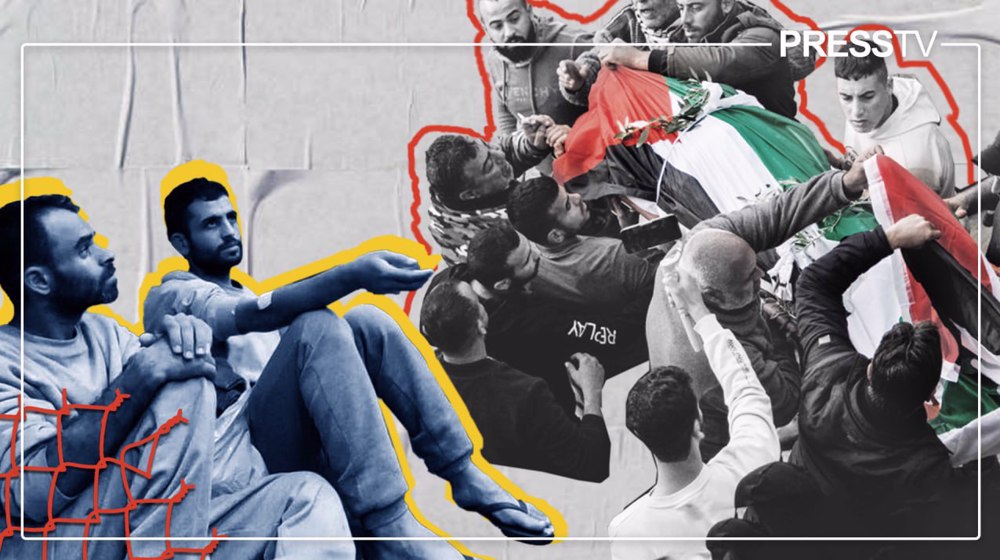
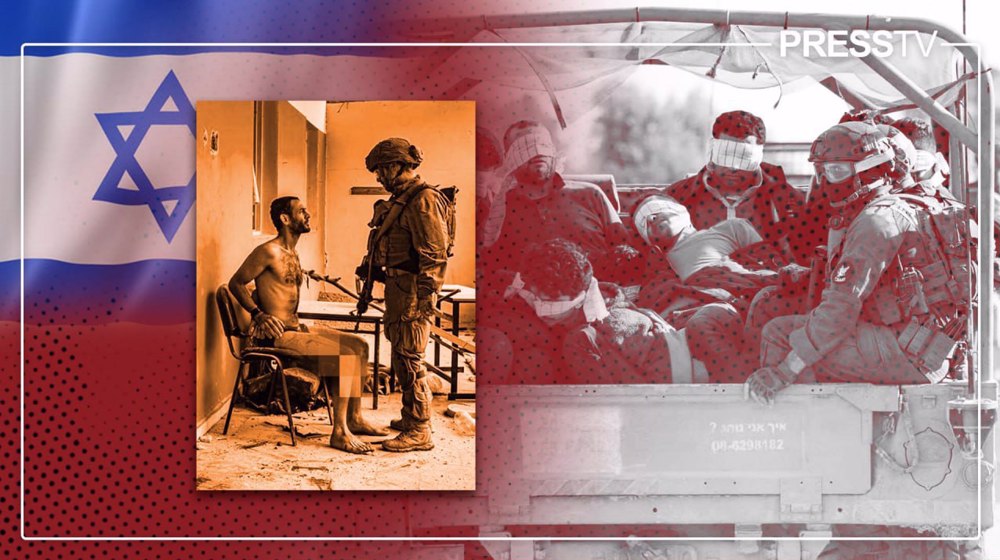
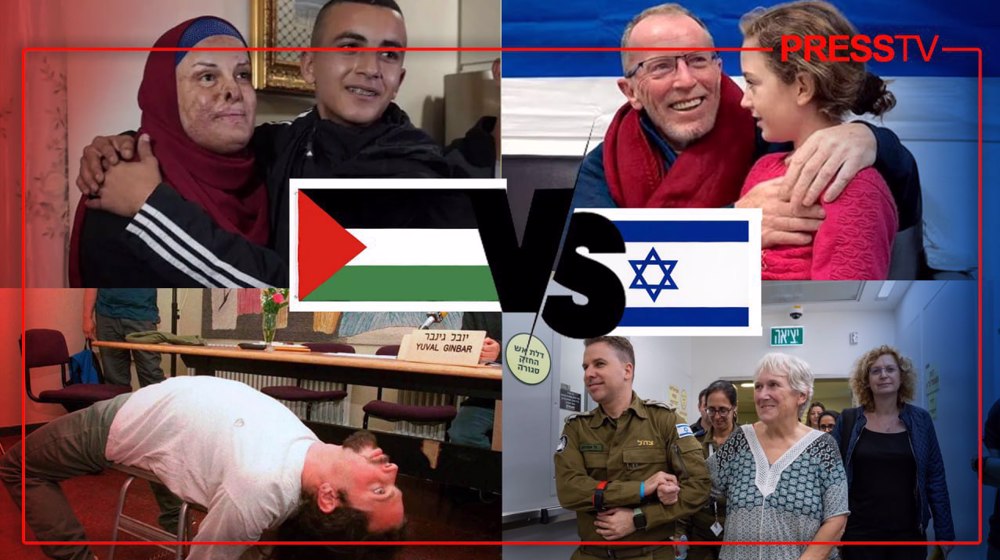
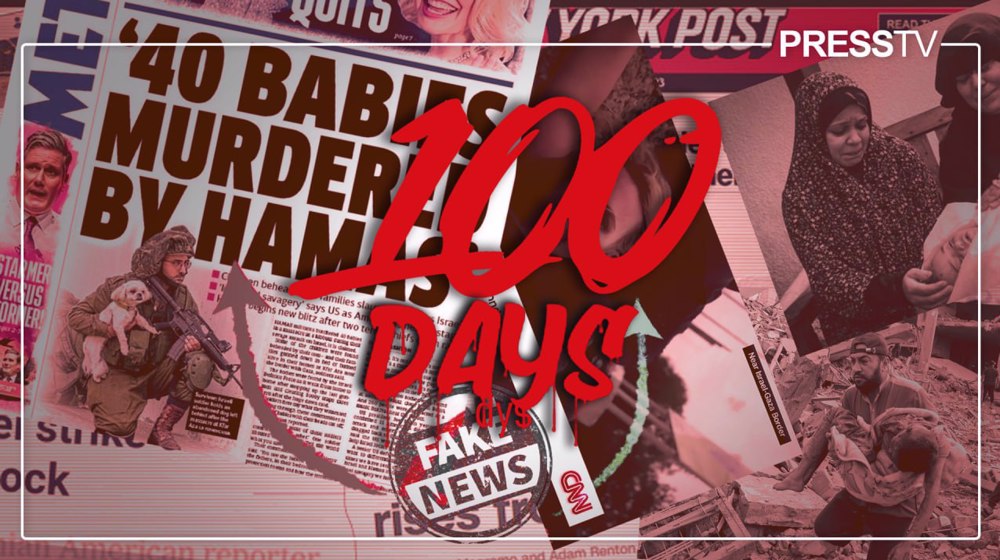
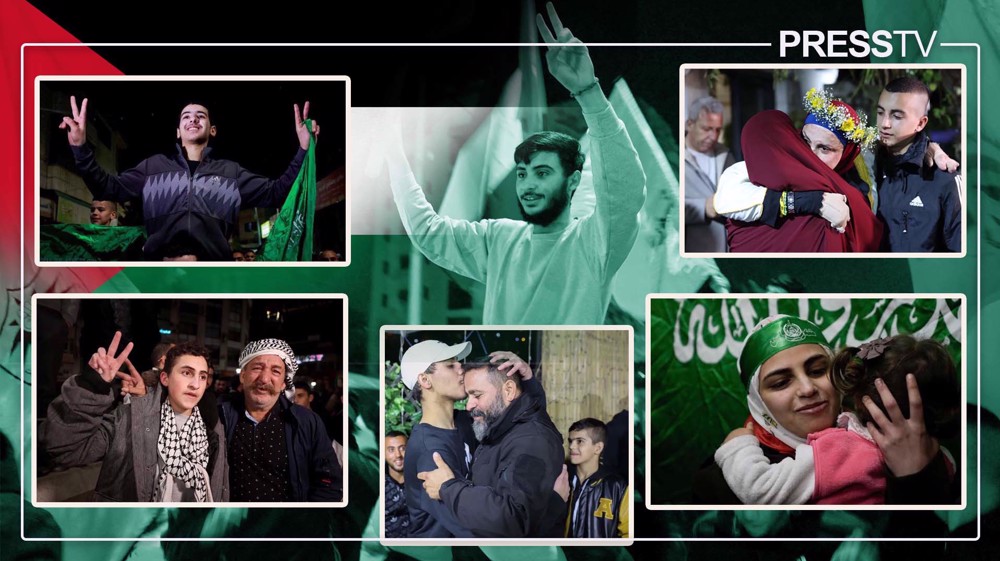
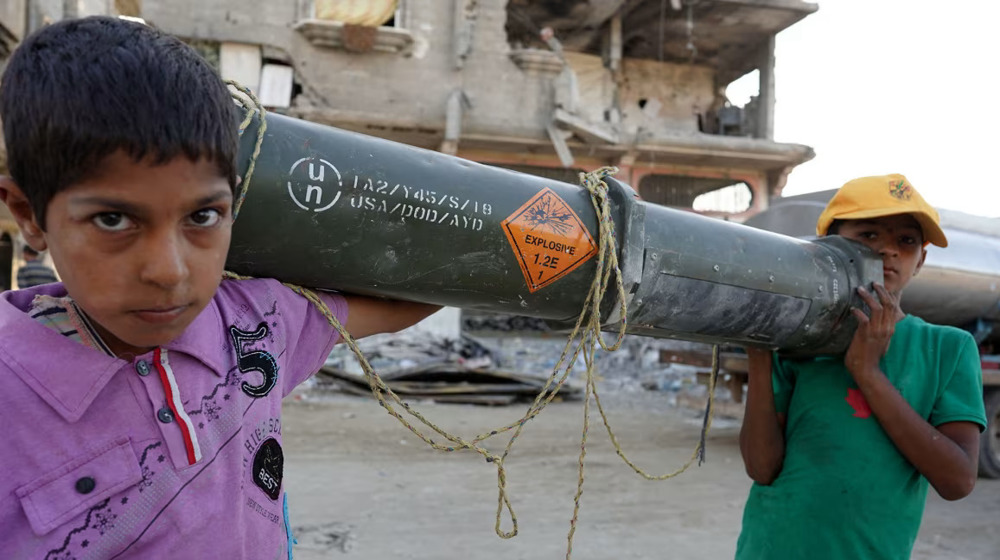

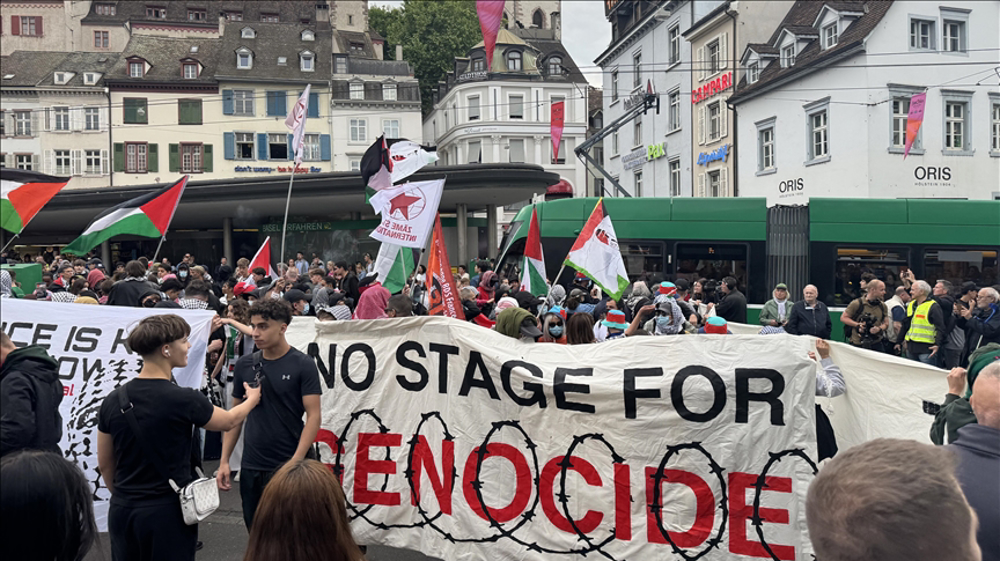



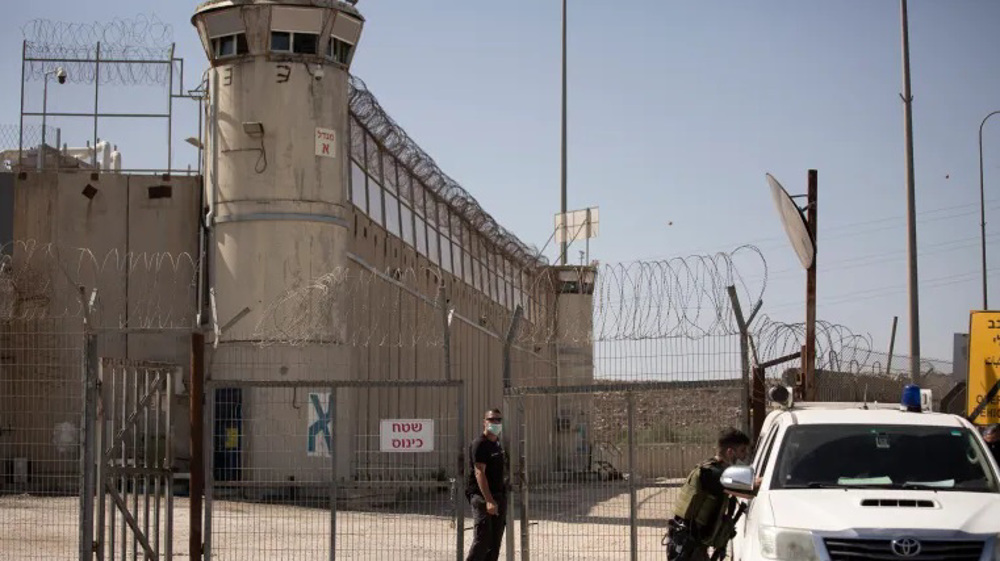
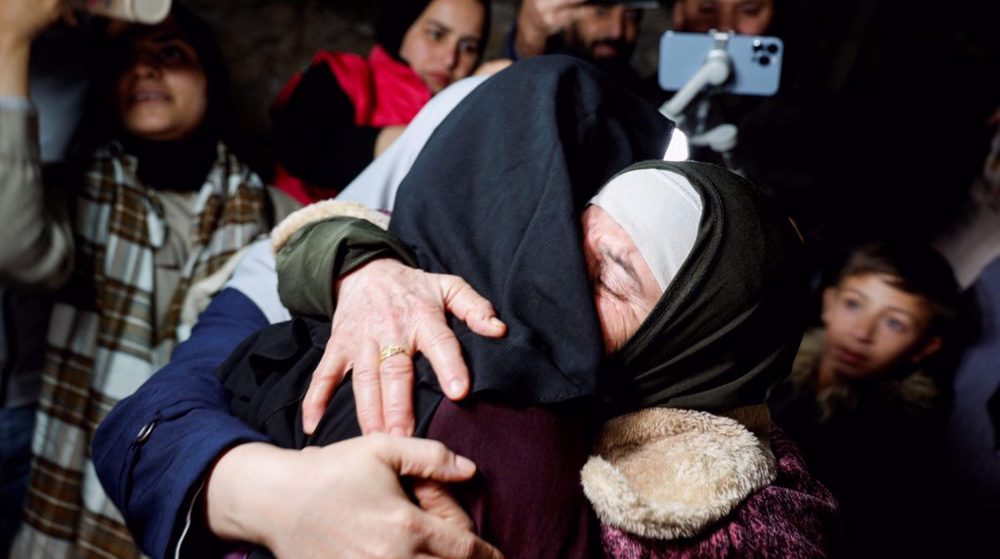
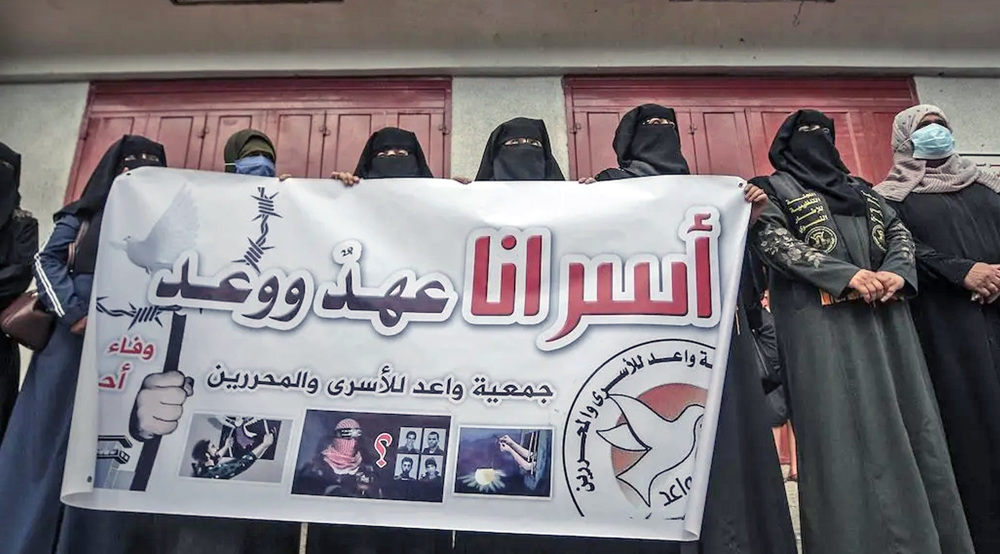
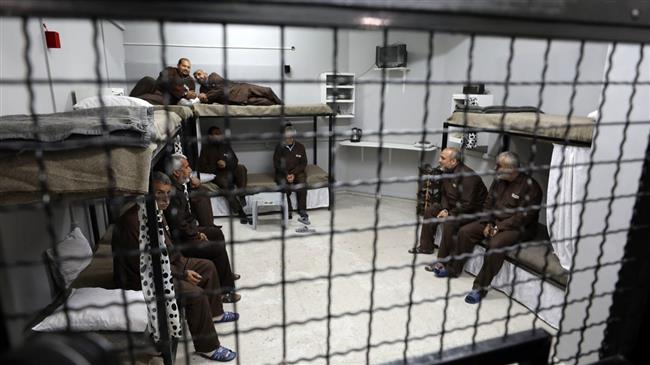


 This makes it easy to access the Press TV website
This makes it easy to access the Press TV website